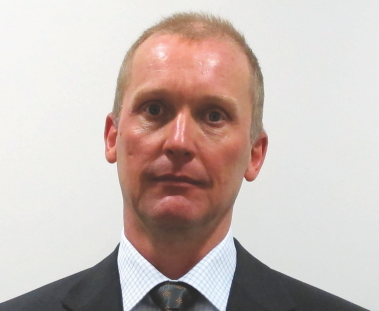By Dr Andrew Cottrill, Medical Director for HCF
Imagine you’re trying to find an orthopaedic surgeon for a hip replacement.
You’ve been in some pain, you’ve spoken to your GP and it’s time to get it done. You’ve spoken to all your friends who have new hips, you’ve got private health insurance and you’ve been doing some Google searches about what to expect.
But you’re wondering about the out of pocket expenses associated with the procedure.
You’ve worked up a short list of surgeons after chatting to your GP. How do you find out which surgeons are likely to charge additional out of pocket expenses?

Well up until recently you probably would have rung around – one specialist reception after another – asking questions about fees and what to expect regarding additional costs. There is no easily accessible source of information about the out of pocket expenses you can expect in relation to individual specialists for specific procedures.
Which is amazing given out of pocket costs are such a pain point for Australian consumers. No one likes financial shocks and surprises after undergoing surgery for a health problem.
It’s worth understanding where out of pocket costs come from. The Australian government sets a fee for how much a particular procedure (listed on the Medicare Benefits Schedule) should cost. Medicare pays for 75% of that fee and private health insurers agree to pay for the remaining 25%.
The out-of-pocket costs occur because healthcare providers can charge more for a procedure on top of the fee set by the government. The surgeons can effectively choose to charge what they like. When healthcare providers choose to charge more, some or all of those extra costs land on the consumer.
HCF, like other private health insurers, operates gap arrangements – ours is called HCF Medicover – which aims to minimise or eliminate out of pocket costs for members. We pay more to specialists when they set fees to keep out of pocket costs below $500 and we pay even more if they eliminate out of pocket costs entirely. Although this is effective a lot of the time, unfortunately we cannot guarantee how any particular specialist will charge, so it is important that our members know what out of pocket costs other HCF members typically experience.
The Consumers Health Forum of Australia (CHF) recently released a report (“Specialist fees and performance transparency – potential for improvement”, January 2019) that said a lack of transparency around quality and performance of specialists is having an adverse impact on large numbers of consumers and undermining the overall performance of the health system.
Making this situation even worse is the common misconception that actually paying more for a medical procedure is somehow magically associated with a better quality outcome. As the CHF report points out, despite considerable work from the Royal Australasian College of Surgeons to make it clear that high fees do not necessarily guarantee quality of treatment or outcomes, consumers may falsely assume that higher cost services are higher quality than lower priced alternatives.
So in order to get the best value, consumers should be armed with as much information as possible about the likely out of pocket costs associated with choosing certain specialists and surgeons.
HCF is trying to help with this issue. We have recently launched a new online service that (for the first time ever) allows members to select a particular specialist, then access a drop-down menu to select one of the common procedures performed by the specialist and then see (in ranges) the out-of-pocket expenses experienced by HCF members for that procedure.
Having chosen a specialist to contact, the patient will now be able to say “I notice you’ve charged no out of pocket expenses on X% of times in the recent past for this procedure. Can you do it without out of pocket expenses for me?”
This information will also be made available to GP’s via their clinical practice software. The role of GPs is crucial in the process as they are the common referral point for most specialist and many allied health services.
This is a positive development given the considerable interest among a range of groups (including the Consumer Health Forum) in increasing transparency around out of pocket costs and arming patients with as much information as possible.
We hope this move toward increased fee transparency and clarity around out of pocket expenses will help people to make more informed decisions about their healthcare and minimise or avoid completely unexpected out of pocket costs.
That’s what everyone wants and HCF is pleased to have taken this important initial step.
